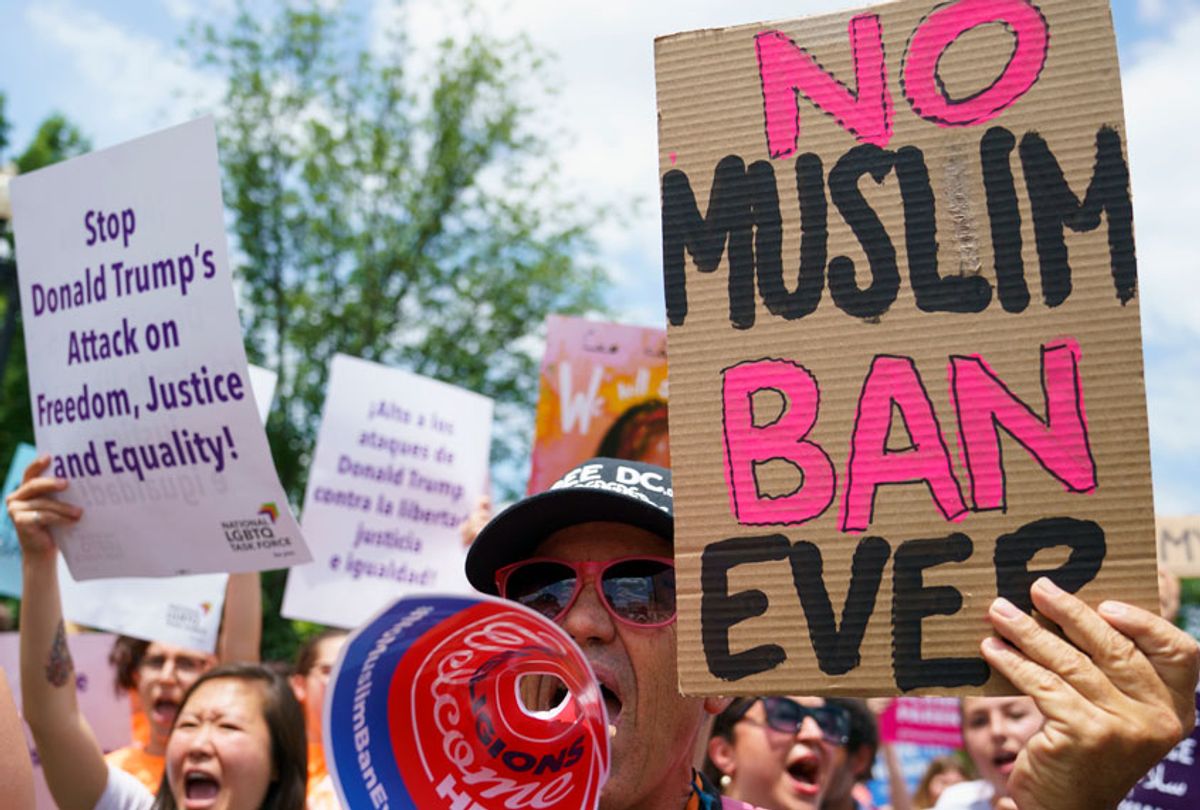The Yemeni mother of a two-year-old boy on life support in a San Francisco hospital is being prohibited from coming to the U.S. to say goodbye to her son because of President Donald Trump's travel ban, which bars individuals from several Muslim-majority countries from entering the country, the child's family claims.
The San Francisco Gate reports that two-year-old Abdullah Hassan was born with a rare brain disease that affected his ability to walk and caused weekly seizures, according to his father Ali Hassan. The boy's condition is not improving, and Hassan just wants his wife, Shaima Swileh, to see their son one last time.
"It's separating family – literally separating family from each other," Hassan said. "Right now, there's no parent supposed to go through what I'm going through – nobody. I'm just doing my best. I do what I can."
Hassan is a U.S. citizen who lives in Stockton, Calif. His son was born in Yemen, but later became a U.S. citizen. His wife, Swileh, is a Yemeni national, who currently lives in Egypt.
Hassan brought his son from Cairo to the U.S. for medical treatment about five months ago, according to the SF Gate. That was reportedly the last time the mother saw her sick child.
The parents are ready to take Abdullah off life support, but they want his mother to have one more chance to hold him. The U.S. State Department has, so far, ignored their requests for a waiver to get her into the country, the SF Gate reported.
"All she wishes is to hold his hand for the last time," Hassan said. "If I could take him off the ventilator and to the airplane, I would take him to her. I would let her see him, but he won't make it."
The Council on American-Islamic Relations (CAIR) has reportedly filed a formal letter with the State Department and the U.S. Embassy in Cairo, where Hasan's wife is currently living, demanding that the government expedite the mother's request for a visa.
Trump introduced the first version of his travel ban just days after taking office in January 2017. The executive order was met with intense scrutiny and massive protests. It was quickly frozen by the judicial system before the most-recent version was upheld by the Supreme Court this summer. The ban prohibits U.S. entry by citizens from five Muslim-majority countries: Iran, Libya, Somalia, Syria and Yemen. Citizens from those countries can request a waiver from the ban, but so far exemptions have been rare. Only two percent of waivers have been granted, according to Reuters.
Hassan told the Gate that, every time he contacts to the State Department to follow up about the status of his wife's visa, he receives an automated response that claims her application is being processed. He said this back-and-forth has been going on for a year — and they are running out of time.
"It's really urgent," Hassan's father, Fawzi Hassan, said. "She's crying every day, 'Please help me get to my son.' We need her to see her son one last time – to hold him for at least a minute. She's not going to see him forever."
"If he dies, and we bury him without his mom seeing him, that will be a disaster," he added.
CAIR is scheduled to hold a press conference with Hassan in Sacramento on Monday, CBS station KPIX reports.
"Our hearts are breaking for this family," CAIR-SV Civil Rights Attorney Saad Sweilem told the local CBS station. "The loss of a child is something no parent should experience, but not being able to be there in your child's last moments is unfathomably cruel."

Shares